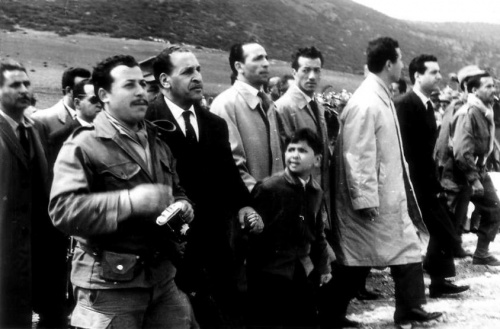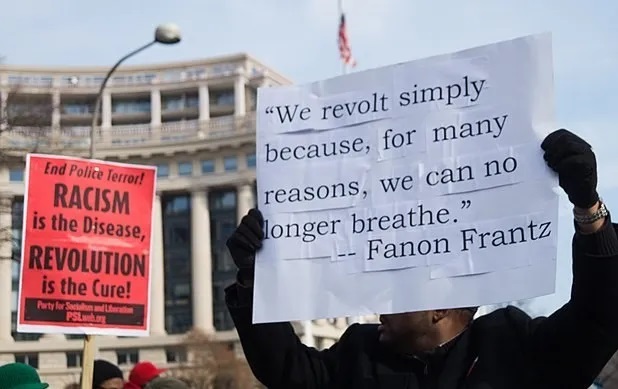Today, July 20, 2025, marks the 100th anniversary of the birth of Frantz Fanon, the Martinican psychiatrist and political thinker renowned for his influential writings on colonialism, identity, and liberation. A century after his birth, Fanon’s profound work continues to shape global debates and inspire political and social movements, resonating deeply in a world still grappling with the legacies of oppression.
A life shaped by colonialism
Frantz Omar Fanon was born in 1925 in the French colony of Martinique. His early intellectual development was significantly influenced by radical thinkers like Aimé Césaire, the celebrated poet and politician associated with the Negritude movement, who was also his teacher.
Fanon’s formative experiences included joining the Free French forces during World War II, where he bravely fought against fascism in Europe.
However, his return home was marked by profound disillusionment. Despite having risked his life for France, he faced pervasive racial discrimination. He was treated as a second-class citizen, an early and stark illustration of the inherent contradictions of colonial loyalty.
This deep sense of dissonance intensified during his tenure as a psychiatrist in Algeria, then under brutal French colonial rule. Though initially employed by the colonial system, Fanon gained an intimate, firsthand understanding of its inherent violence and dehumanizing effects from within. In 1956, unable to reconcile his professional ethics with the colonial apparatus, he famously resigned from his post at Blida-Joinville Psychiatric Hospital.
He then fully committed himself to the Algerian independence movement, aligning his medical and intellectual work with the National Liberation Front (FLN) in their fervent struggle for liberation. His direct involvement provided him with a unique perspective on the psychology of both the colonized and the colonizer.

Major works and enduring impact
Fanon’s most celebrated books, Black Skin, White Masks (1952) and The Wretched of the Earth (1961), remain cornerstone texts in postcolonial studies and critical race theory. In Black Skin, White Masks, he meticulously examined the psychological effects of racism and colonialism on the colonized subject, exploring themes of alienation, self-perception, and the struggle for authentic identity.
The Wretched of the Earth, written in exile while he battled leukemia, became a foundational text for liberation movements worldwide. In this seminal work, he passionately argued that colonialism was not merely a political and economic system but also a deeply psychological one, asserting that true liberation necessitated not only structural change but also a profound personal and collective transformation.
His analysis of violence in the context of decolonization, though controversial, provided a framework for understanding resistance movements.
Legacy and contemporary relevance
Fanon’s ideas continue to exert a powerful influence on struggles for justice across continents. From the Black Lives Matter movement in the United States, which echoes his critiques of systemic racism and state violence, to the Palestinian movement for liberation, and from Indigenous land rights campaigns to broader decolonial initiatives across Africa, Latin America, and Asia, Fanon remains a key reference point for activists, scholars, and artists.
His concept of a decolonized mind—one free from inherited systems of domination and internalized oppression—continues to resonate profoundly with those challenging racial, economic, and cultural injustice in all its forms. His insights into the dynamics of power, resistance, and identity remain remarkably pertinent to contemporary global challenges.

Centenary events around the world
To mark the centenary of his birth, institutions and activist groups globally are organizing a series of commemorative events, reflecting the enduring relevance of his thought:
- June 28–29: The University of London’s Birkbeck held a conference titled “Fanon’s Philosophical Legacy: Fanon at 100,” which brought together leading scholars to examine Fanon’s intellectual contributions and their contemporary applications.
- July 17–20: The Cercle Frantz Fanon in Martinique concluded a global forum at Université des Antilles in collaboration with international partners, a major gathering to discuss his work in his homeland.
- July 18–20: Tunisia’s Faculty of Medicine in Sousse hosted an interdisciplinary conference titled “Frantz Fanon’s Centenary: Alienation, Violence, and Migration in North African Postcolonial Societies,” exploring his relevance to regional issues.
- July 20–21: In Bordeaux, France, the Mémoires & Partages network is organizing public screenings and roundtable discussions under the theme “L’Héritage de Frantz Fanon Aujourd’hui” (The Legacy of Frantz Fanon Today), reflecting on his impact in the former colonial power.
Fanon died of leukemia in 1961 at the tragically young age of 36 in Bethesda, Maryland. Though his life was short, the reach and impact of his ideas have only expanded over time. As his centenary is marked around the world this week, many see this moment not just as a tribute to a revolutionary past but as a renewed opportunity to reflect on the urgent and continuing relevance of Fanon’s work in today’s world, where struggles for justice and self-determination persist.
